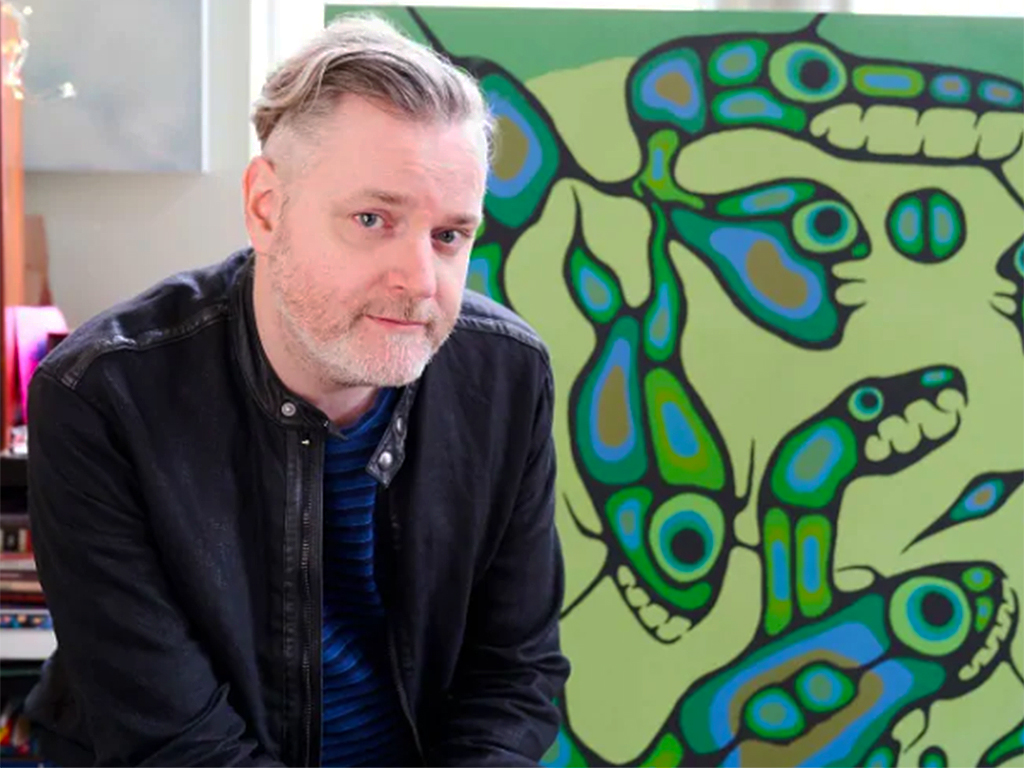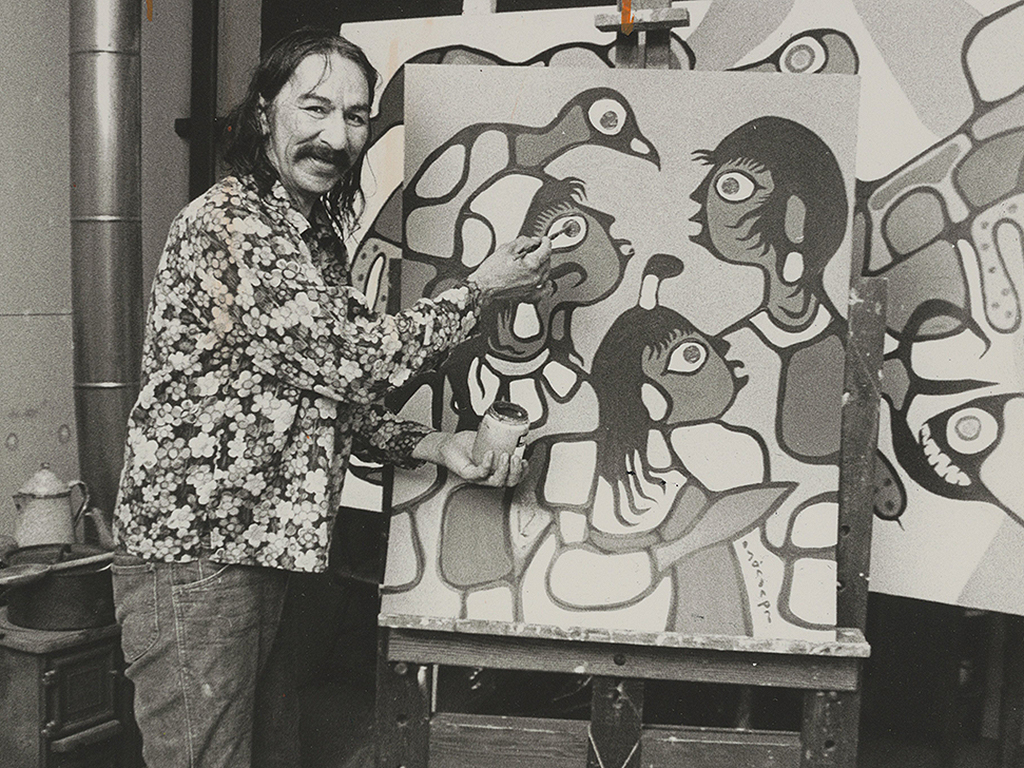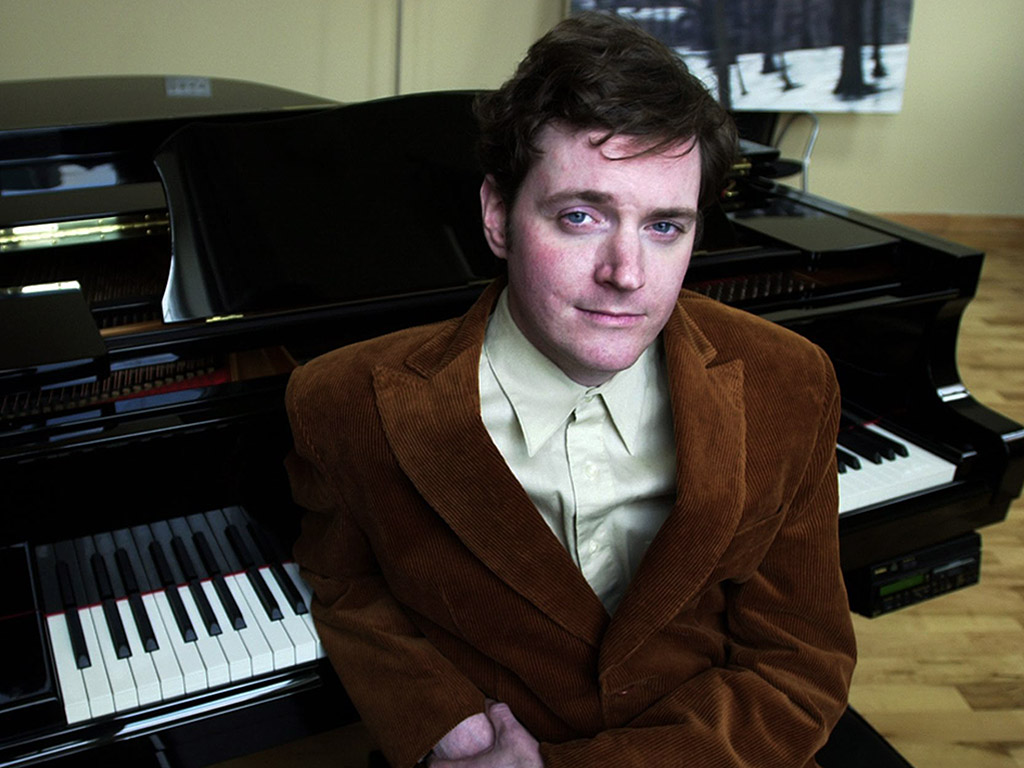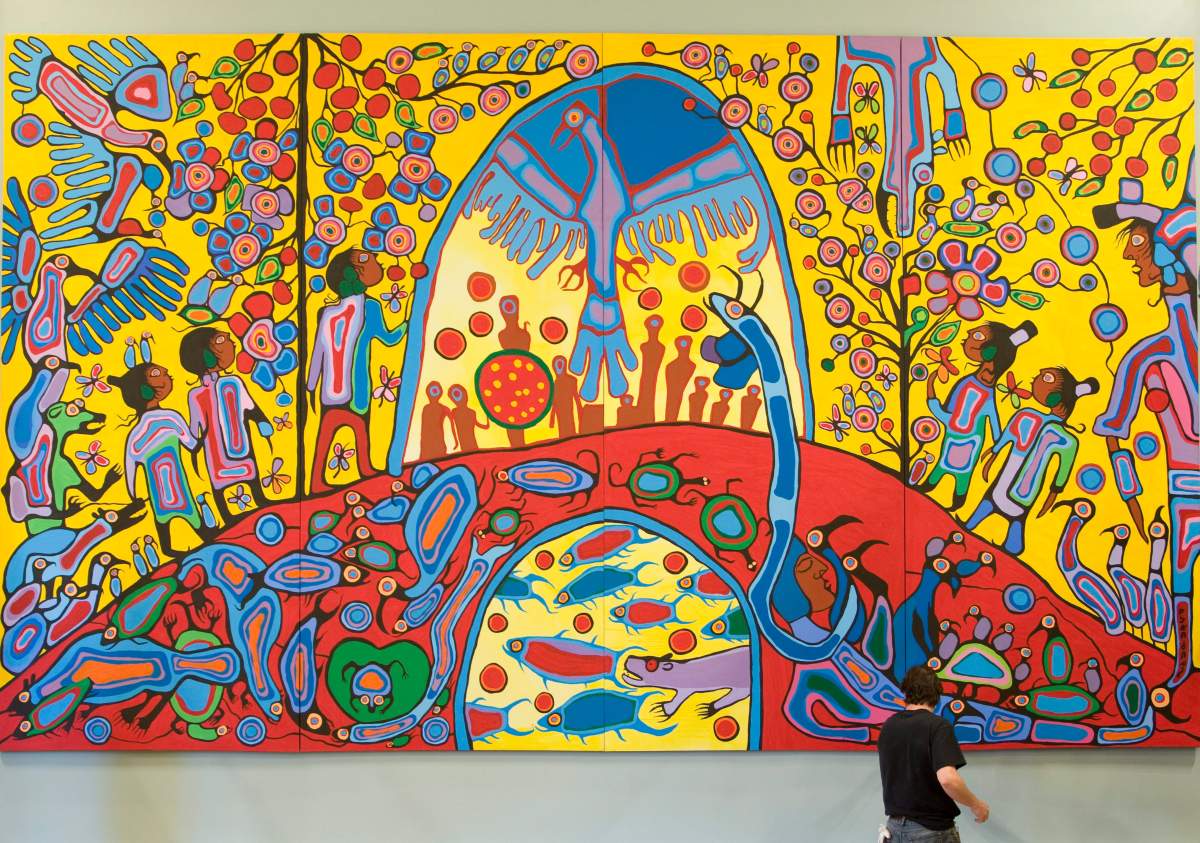The Court of Appeal for Ontario sided with Barenaked Ladies guitarist and keyboardist, Kevin Hearn, and awarded him tens of thousands of dollars in conclusion of a longstanding legal battle against the Maslak-McLeod Gallery on Tuesday.

Back in 2013, Hearn sued the Toronto art gallery and the estate of its late owner, Joseph McLeod, for fraud. As reported by Globe and Mail, he claimed he was sold a fake painting by the gallery in 2005.
Initially, the 50-year-old musician, for $20,000, believed he was buying a genuine painting — Spirit Energy of Mother Earth (1974) — crafted by renowned Anishinaabe artist, Norval Morrisseau.
According to the Canadian Press, he quickly grew suspicious that the painting was fake after the Maslak-McLeod Gallery could not provide him with proof of authenticity.
The gallery supposedly became “deliberately elusive” when Hearn requested a “valid provenance statement,” which would detail the ownership history of the painting. He was never given one and as a result, sought out professional advice about the art piece.
READ MORE: ‘American Idol’ contestant Haley Smith dies in motorcycle accident
Hearn’s inceptive suspicions were heightened after speaking with an official from the Art Gallery of Ontario (AGO), who alerted him the purported original may be a fake.
According to legal documents obtained through the Court of Appeal for Ontario, the same “Morrisseau” was removed from an old AGO exhibit as a result of the same concerns before eventually ending up in Hearn’s possession.
On top of that, during the initial trial, an art history scholar from the University of Regina, Carmen Robertson, testified that while the painting drew on Morrisseau’s “visual vocabulary” it did not fit in with his other works from that time period, leading her to believe it was a fake.
Unfortunately for Hearn, the trial judge rejected Robertson’s evidence by invoking a different theory of analysis. His ruling drew on “numerous critical theorists and their works,” none of which were supposedly presented during the proceedings.
Hearn’s allegations of civil fraud were dismissed by the same lower court judge. In the end, he could not conclude whether the painting was genuine or not. As per the law, the judge ruled that a tie must go in favour of the Maslak-McLeod Gallery.

Get breaking National news
READ MORE: Ariana Grande files U.S. copyright lawsuit against Forever 21
Tuesday’s unanimous ruling, however, revealed that the appeal court said the trial judge erred in relying on his own research, which was not entered as evidence and thus could not be challenged, in rejecting the testimony of an expert who deemed the piece a fake.
Furthermore, the appeal court said the trial judge misapprehended the evidence surrounding the agreement between Hearn and the gallery — particularly in relation to the issuance of a valid provenance statement.
“The evidence overwhelmingly supports the appellant’s claim that he bargained for and was promised an authentic Morrisseau painting to be accompanied by a valid provenance statement attesting to the painting’s authenticity,” the appeal court said.
“However, the trial judge effectively severed the contractual term that the painting be an authentic Morrisseau from the contractual term that the painting be accompanied by a valid provenance statement.”
READ MORE: Canadian connection? Justin Bieber claims he’s related to Ryan Gosling and Avril Lavigne
The appeal court determined that McLeod’s elusiveness in ensuring Hearn that the painting he bought was a genuine Morrisseau was deliberate.
“With respect to the provenance statement, Mr. McLeod made a false representation, either knowing that it was false and without an honest belief in its truth, or he made the statement recklessly without caring whether it was true or false, with the intent that Mr. Hearn would rely upon it, which he did, to his personal loss.”
Before filing the lawsuit, Hearn reportedly raised his concern to McLeod, who refused to investigate it or issue a refund because “that would set off a chain of events that would result in the closing of the gallery,” as reported in the legal document.
The appeal court further criticized the initial trial judge for an “ill-advised attempt at humour,” calling certain comments he made, “inappropriate and unnecessary.”
The judge had joked that if Hearn “had $1 million, he would buy a Norval Morrisseau,” in reference to the Barenaked Ladies 1990 smash-hit, “If I Had $1,000,000.”
READ MORE: Fall TV 2019 premiere dates: When do your favourite shows start?
The gallery’s actions amount to civil fraud, and warrant punitive damages of $10,000, the appeal court said. Those damages are on top of the $50,000 plus interest the gallery must pay Hearn for breach of contract and breach of the Sale of Goods Act, it said.
WATCH (May 2019): How to make the most out of the art in your home

The appeal court ruled that once Hearn receives the money, he must return the supposedly ingenuine painting to the Maslak-McLeod Gallery.
— With files from the Canadian Press











Comments